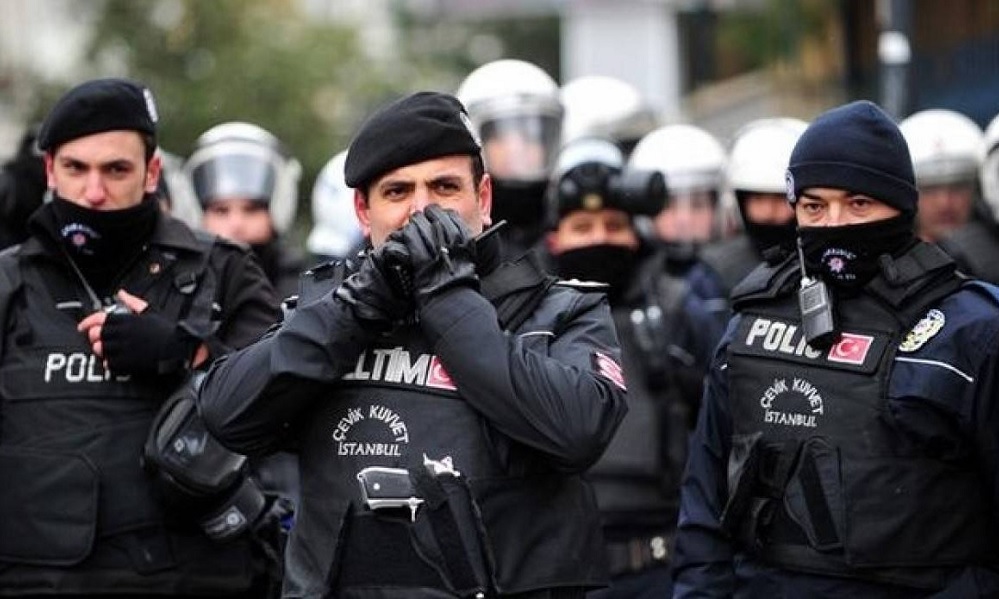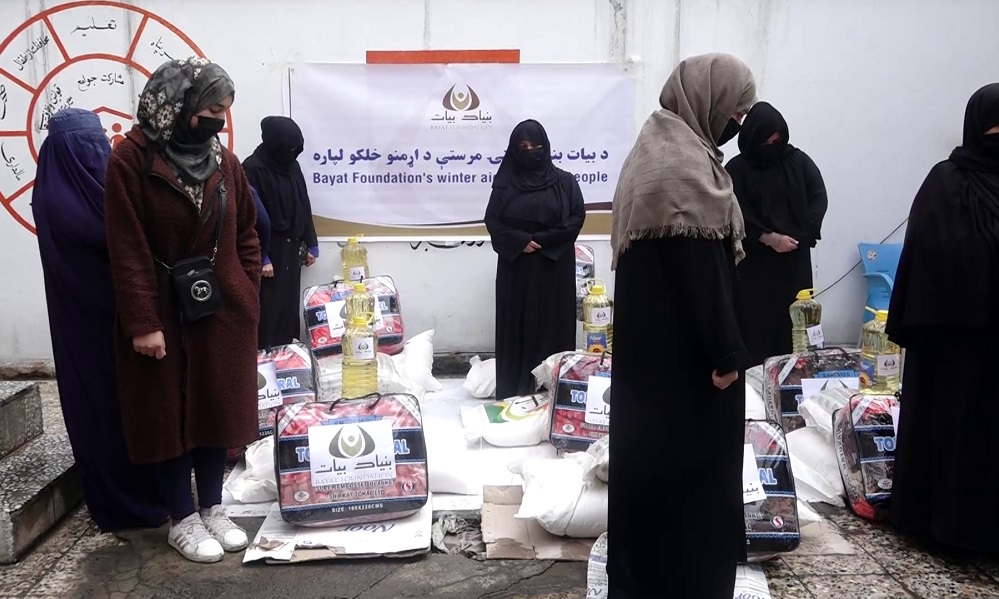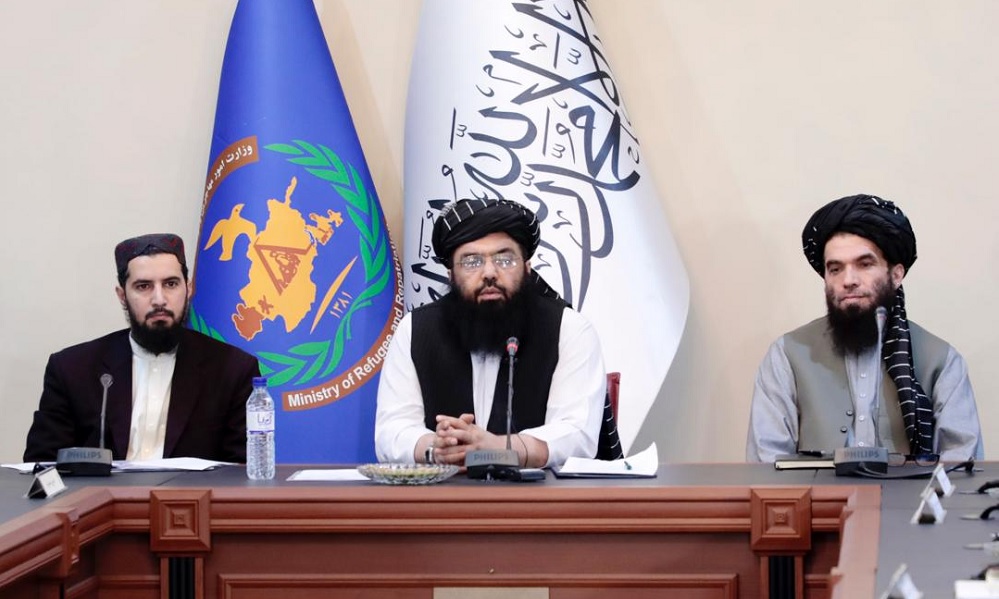Latest News
Afghanistan’s economy shows modest growth but recovery remains fragile

The Afghan economy is showing signs of moderate growth, but still faces significant challenges, including fiscal constraints, trade imbalances, and a limited capacity for public investment, the World Bank (WB) said Wednesday.
According to the organization’s latest Afghanistan Development Update, issued on Wednesday, “Afghanistan’s economic recovery remains uncertain”.
Modest GDP growth of 2.7%, driven by private consumption, has recouped only about 10% of past economic losses, indicative of the slow and fragile nature of the recovery, the WB said.
According to the organization, this level of growth has done little to address deeper structural issues and significant vulnerabilities within Afghanistan’s economy.
“Enabling women’s participation in the economy, strengthening domestic resource mobilization, maintaining price stability, and addressing critical deficits in human capital – particularly in education and healthcare, and especially for women – will be essential for long-term recovery and reducing vulnerability to future shocks,” the WB said in a statement.
Faris Hadad-Zervos, World Bank Country Director for Afghanistan said: “Afghanistan’s long-term growth prospects depend on tapping into the substantial potential of the domestic private sector and improving the overall business environment.
“Key to this is increased investment, providing access to finance to small businesses, and supporting educated and skilled women entrepreneurs so their businesses can thrive. Without this, the country risks prolonged stagnation with limited prospects for sustainable development,” he said.
Meanwhile, the partial recovery, coupled with falling food prices, has contributed to a gradual improvement in household welfare.
But most Afghan households continue to struggle to meet basic needs and poverty remains widespread.
“Vulnerable groups, including women, children, and displaced populations, continue to bear the brunt of the economic hardship, due to the lack of social protection mechanisms,” the WB stated.
In addition, Afghanistan’s trade dynamics remain a significant challenge.
In 2023-24, the country’s exports remained stable, but imports surged, leading to a widening trade deficit, the WB reported.
The appreciation of the afghani (AFN) made imports cheaper, fueling demand for foreign goods, while domestic industrial activity revived, increasing the need for imported inputs.
However, the trade deficit, exacerbated by Afghanistan’s reliance on imports for essential goods like fuel, food, and machinery, might pose a risk to the country’s economic stability, the organization stated.
Meanwhile, Deputy Minister of Economy Abdul Latif Nazari said that Afghanistan’s economy has a clear outlook and the current problems are caused by sanctions and the freezing of the country’s foreign exchange reserves.
“Afghanistan’s economic outlook is bright and hopeful. Some of the economic problems that exist are due to sanctions, banking restrictions and the freezing of assets of the Afghan people,” Nazari added.
“Our effort is to free the property of the people of Afghanistan as soon as possible and use it in line with the economic growth and development of the country.”
Latest News
Turkish intelligence captures a Daesh member near the Durand Line

Turkish intelligence agents have captured a senior member of Daesh near the Durand Line, reportedly preventing planned suicide attacks in Turkey and other countries, according to Turkey’s state-run Anadolu Agency on Monday.
The suspect, identified as Mehmet Goren, is a Turkish citizen. He was apprehended during a covert operation and transferred to Turkey. Details on the timing of the operation or the involvement of Afghan and Pakistani authorities were not disclosed.
According to the report, Goren had risen through the ranks of Daesh and was allegedly tasked with carrying out suicide bombings in Turkey, Pakistan, Afghanistan, and Europe.
Daesh has a history of deadly attacks in Turkey, including the January 1, 2017 shooting at an Istanbul nightclub that killed 39 people.
Anadolu Agency reported that Goren’s arrest also provided intelligence on the group’s recruitment strategies and planned activities.
Latest News
Dozens of needy families in Kabul receive winter aid from Bayat Foundation

Dozens of needy families in Kabul’s fifth district have received essential winter assistance from the Bayat Foundation, as part of ongoing efforts to ease hardship during the cold season and worsening economic conditions.
According to foundation officials, the aid package includes staple food items such as flour, rice, and cooking oil, along with warm blankets to help families cope with freezing temperatures. Haji Mohammad Ismail, Deputy Head of Bayat Foundation, said the distribution began in Kabul and will soon be expanded to other provinces.
“Our assistance includes flour, rice, cooking oil, and blankets,” Ismail said. “Today, we started distributing these items in Kabul’s fifth district, and God willing, the aid will reach other provinces in the near future.”
Afghanistan continues to face widespread poverty, unemployment, and food insecurity, with many families struggling to meet basic needs, particularly during winter when access to work and heating becomes more difficult.Humanitarian organizations and charitable foundations have stepped up relief efforts to support those most affected.
Beneficiaries welcomed the assistance, describing it as a lifeline. “May God bless you for helping the poor. We had nothing and no work,” said one recipient. Another added, “Thank you for your help. Our flour was almost finished.”
Bayat Foundation officials stressed that winter aid distributions will continue in Kabul and other provinces in the coming days, as part of their broader commitment to supporting needy families across the country.
Latest News
Nearly seven million Afghan refugees return home since Islamic Emirate’s takeover

Since the Islamic Emirate came to power, approximately 6.8 million Afghans have returned home, either voluntarily or forcibly, from neighboring countries and other nations, according to the Minister of Refugees and Repatriation.
Mawlawi Abdul Kabir, speaking at a meeting on finalizing a draft plan for a permanent migration solution in Afghanistan, added that 1.3 million Afghans have been internally displaced due to natural disasters during the same period.
With winter approaching, widespread poverty and severe cold are threatening thousands of lives. Meanwhile, the forced expulsion of Afghan migrants from neighboring countries, particularly Iran and Pakistan, continues.
The Islamic Emirate has repeatedly urged neighboring states to allow migrants to return voluntarily. According to UNHCR, over two million Afghans have returned from Iran and Pakistan since the start of 2025.
-

 Latest News3 days ago
Latest News3 days agoAfghan border forces prevent illegal entry of hundreds into Iran
-

 Latest News3 days ago
Latest News3 days agoPakistan summons Afghan diplomat over deadly attack in North Waziristan
-

 Latest News2 days ago
Latest News2 days agoAfghan health minister calls for medical cooperation between Kabul and New Delhi
-

 Latest News1 day ago
Latest News1 day agoAfghanistan signs 30-year deal for marble mining in Daikundi
-

 Latest News3 days ago
Latest News3 days agoJapan allocates nearly $20 million in humanitarian aid for Afghanistan
-

 Latest News3 days ago
Latest News3 days agoKarzai urges reopening of girls’ schools and universities for Afghanistan’s bright future
-

 Health5 days ago
Health5 days agoAfghanistan seeks India’s support in standardizing traditional medicine
-

 World5 days ago
World5 days agoUS readies new Russia sanctions if Putin rejects peace deal, Bloomberg News reports
























